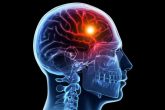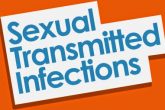
A stroke occurs when blood flow to a part of the brain stops. If blood flow is cut off for longer than a few seconds, the brain cannot get needed blood and oxygen. Part of the brain can die, causing brain damage.
In Nigeria, one third of people die within the first 7 days after a stroke and a little less than half die within 6 months. Most stroke survivors (85%) are left with problems moving, thinking, and talking which may improve in the weeks to months after a stroke. For many, complete recovery never happens and they’re left with permanent disability.
Would you know if someone is having a stroke?
The symptoms of stroke depend on which part of the brain is damaged. In some cases, a person may not know that a stroke has occurred.
Most of the time, symptoms develop suddenly and without warning. If you’re lucky, symptoms may occur on and off for the first day or two allowing time to seek medical attention. Knowing what the symptoms are is really important and may be the difference between life and death for you or a loved one. Symptoms are usually most severe when the stroke first happens, but they may slowly get worse:
Change in alertness (including sleepiness, unconsciousness, and coma)
- Trouble with walking – Stumbling or sudden dizziness, loss of balance or loss of coordination.
Trouble with speaking and understanding – Confusion, slurred words or difficulty understanding speech.
Paralysis or numbness of the face, arm or leg – Sudden numbness, weakness or paralysis in the face, arm or leg, especially on one side of the body. Try to raise both arms over the head at the same time. If one arm begins to fall, it may be a stroke. Similarly, one side of the mouth may droop a smile is attempted.
Trouble with seeing in one or both eyes – sudden blurred or blackened vision in one or both eyes, or seeing double.
- Lack of control over the bladder or bowels
Headache – Sudden, severe headache, with vomiting, dizziness or altered consciousness. The headache interrupts sleep and worsens with change in position, bend, strain, or cough.
Ignore warning signs at your peril
Stroke isn’t something that happens to old people or other people – it can happen to you.
- The single most important thing you can do to prevent stroke is to control your blood pressure. Know what your blood pressure is, and if you have high blood pressure partner with your doctor to treat it properly. Regular check ups with your doctor are important.
- If you have high blood pressure you should receive monthly blood pressure tests from the hospital, health center or clinic. If you can afford it, it’s worth buying a small blood pressure measuring kit from a pharmacy and being taught how to take your own blood pressure weekly.
- The best way to prevent stroke from high blood pressure and diabetes is to take steps to lower blood pressure and blood sugar. These steps include a combination of medication and lifestyle changes, which include healthy eating, exercise, maintaining a healthy weight, avoiding smoking and limiting alcohol.
- Know the signs and symptoms of Stroke: FAST
Facial droop
Arm weakness or drift
Slurred speech
Time is brain…seek medical help immediately


